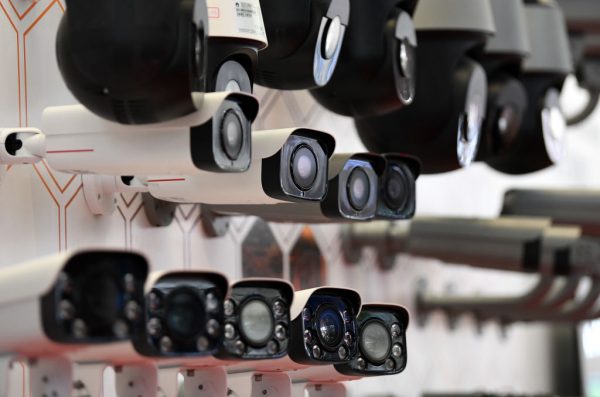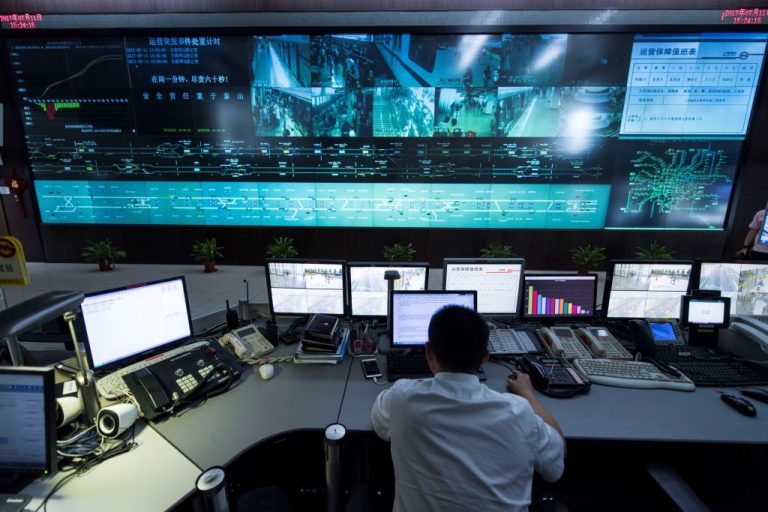Authorities in China have begun using the SkyNet surveillance network to surveil and trace thousands of people attempting to flee the country and have them forcibly repatriated.
Currently, the most common targets of SkyNet are Ugyhur Muslims — an ethnic minority group native to China’s Western region of Xinjiang. However, activists, political dissidents, and anyone who publicly speaks out against the government — as well as absconded corrupt officials — is also at risk.
READ MORE:
- Communist Politics Are Bringing Disaster to China–And Xi Jinping
- Government Offices, Schools Installing CCP-Backed Hikvision Thermal Imaging in Pandemic Response
- Leaked Chinese Secret Watch List Featuring Hundreds of Americans
In recent years, the Chinese regime has rounded up more than 1 million Uyghur Muslims for “re-education” in “counter-extremism camps” across Xinjiang and other remote parts of western China.
The Chinese Communist Party (CCP) also has a long track record of targeting religious faiths and minorities for violent assimilation to its atheist ideology since its inception in 1949. In addition to Uyghurs, the CCP has also subjected Christians, Catholics, Tibetans, and adherents of the Falun Gong spiritual practice to relentless abuse for their religious beliefs.

What is SkyNet?
China’s largest and most extensive surveillance networks began in a small county about seven hours north of Shanghai.
Success
You are now signed up for our newsletter
Success
Check your email to complete sign up
In 2013, the local government in Pingyi County began installing tens of thousands of security cameras across urban and rural areas — more than 28,500 in total by 2016. Even the smallest villages had at least six security cameras installed, according to state media reports.
Those cameras weren’t just monitored by police and automated facial recognition algorithms. Through special TV boxes installed in their homes, local residents could also access the live security feed and press a button to summon police if they saw anything amiss. The security footage could also be viewed on smartphones and could be viewed 24/7.
The goal was to ultimately have 100 percent of China’s public spaces under constant watch by 2020, the government said.
In 2015, the Chinese government announced that a similar program would be rolled out nationwide, with a particular focus on remote and rural towns. The project was named the “Xueliang,” or “Sharp Eyes,” — a reference to a quote from former Communist leader Mao Zedong who once wrote that “the people have sharp eyes” when examining neighbors not living up to communist values and ideals.
Sharp Eyes is one of a number of overlapping and intersecting technological surveillance projects built by the Chinese government over the last two decades. Projects like SkyNet and Sharp Eyes have enabled more than 200 million public and private security cameras to be installed across every nook and cranny in China.
SkyNet to expand into global long-arm policing
After SkyNet was officially launched in 2014, the CCP repatriated nearly 10,000 people that had fled to over 120 other countries and regions, a report by Spain-based NGO Safeguard Defenders said.
The study also revealed that just one percent of those brought back to China were prosecuted in accordance with lawful procedures, and more than 60 percent were just put on a plane against their will and sent back.
“The diversity of the CCP’s so-called ‘extradition’ is something that worries us,” Chen Yanting of Safeguard Defenders told Radio Free Asia (RFA). “For example, the Interpol red notice mechanism is increasingly being abused to persuade other countries to cooperate.”
“Another example is [legal] extradition on the surface, but China will use illegal methods behind the scenes alongside the formal extradition process,” Chen said.
State-run newspaper The Global Times previously said that SkyNet “mostly focuses on people who have fled to Western countries such as the US, Canada or Australia.” In 2020 alone however, state media reported that at least 1,421 fugitives were brought back to China during the “anti-corruption manhunt operations,” spearheaded by Chinese leader Xi Jinping.
During a speech to congress, it was said that “the leverage created through the Belt and Road Initiative enabled the People’s Republic of China (PRC) to build an integral mechanism for tracking fugitives,” adding that SkyNet will expand its operations in 2022, and will “seize the opportunity created by its chairmanship of the BRICS Anti-Corruption Working Group.”
Fates hanging in the balance
RFA also reported on a Uyghur mother and her 13-year-old daughter crying for help after being detained in Saudi Arabia, and told they would be sent back to China.
A video clip of the harrowing account recently surfaced on social media, highlighting China’s use of pliant allies to circumvent legal process, and ensure political refugees are sent back to the country for prosecution. Once sent back, the refugees are more than likely to face severe punishment and/or torture for attempting to flee.
“We call on Saudi authorities to immediately release four Uyghurs – including a 13-year-old girl and her mother – who are at grave risk of enforced disappearance, torture and forced separation if sent back to China,” Safeguard Defenders said in a statement.
Abla Buhelchem and her daughter were detained near Mecca and told by local police that they would be sent back to China along with Abla Buhelchem’s ex-husband Nurmemet Rozi and Hemdulla Weli — both of whom have been detained without charge since November 2020.














